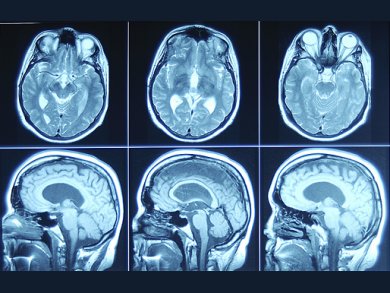Malignant glioblastomas are aggressive brain tumors for which only limited therapies exist. Martje Tönjes, German Cancer Research Center, Heidelberg, and colleagues discovered that the catabolism of branched-chain amino acids (BCAAs), namely leucine, valine, and isoleucine, drives the development of a particular type of glioblastoma.
The researchers inhibited BCAT1 (branched-chain amino acid transaminase 1), the enzyme which initiates the breakdown of BCAAs. By doing so, the team was able to reduce the proliferation of cancer cells and reduce the tumoral growth.
BCAT1 might therefore constitute an important target to develop novel therapeutic approaches for the treatment of glioblastomas.
- BCAT1 promotes cell proliferation through amino acid catabolism in gliomas carrying wild-type IDH1,
Martje Tönjes, Sebastian Barbus, Yoon Jung Park, Wei Wang, Magdalena Schlotter, et al.,
Nat. Med. 2013, 19, 901–908.
DOI: 10.1038/nm.3217




